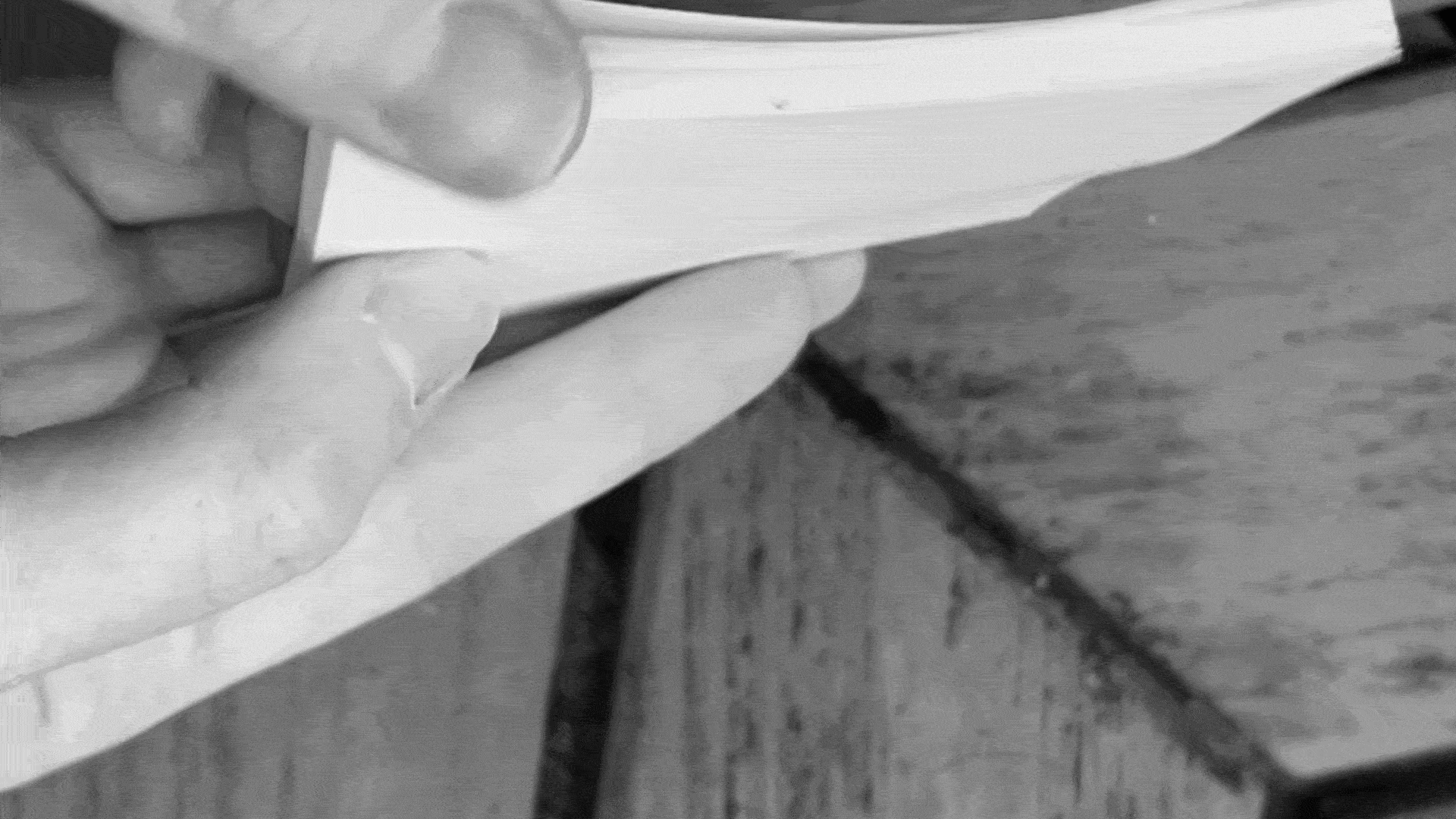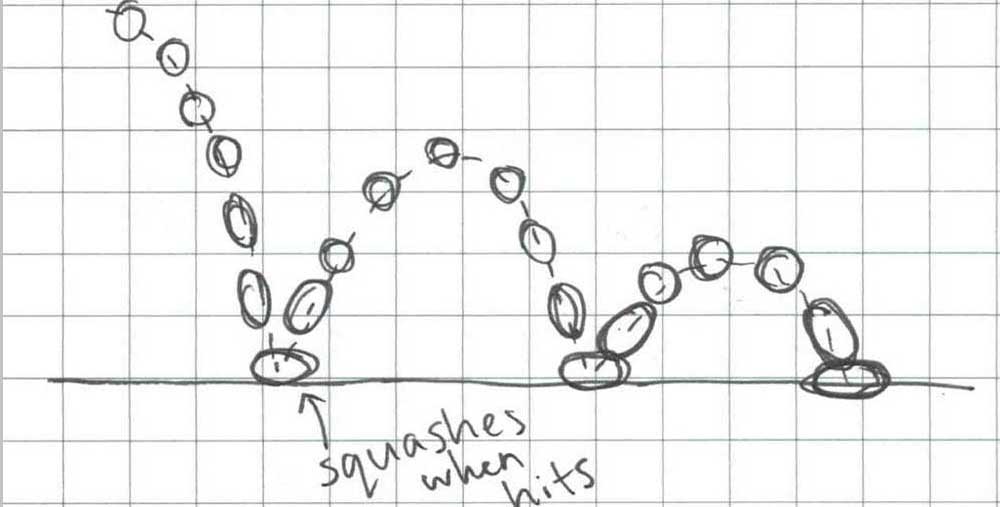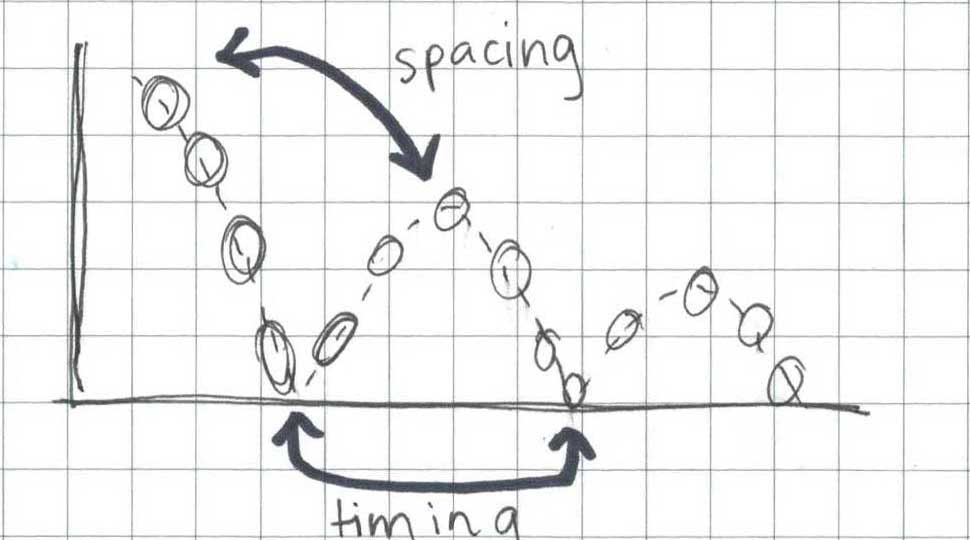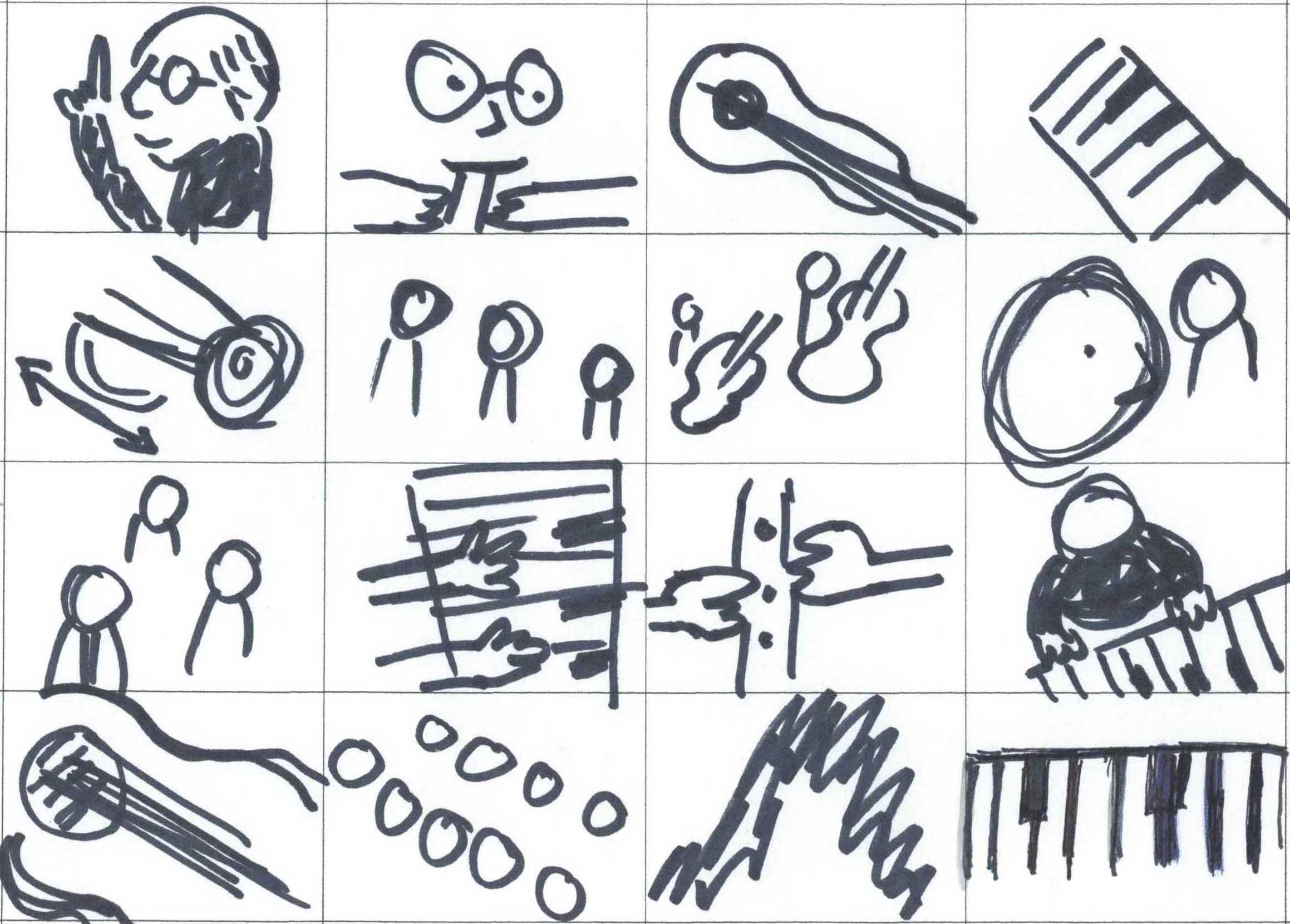Motion Graphics - Workshops
Experimentations to develop skills and understanding of animation.
← Back to Motion Graphics



Flipbook
One of the first things we did during this project was create a very simple flipbook of a bouncing ball. This helped me to understand the difference between timing and spacing, with timing referring to how long the action takes place and spacing referring to the variation of the speed during this movement.
We incorporated a squash and stretch animation technique which gave the movement a sense of weight; the ball elongated as it fell, squashed as hit the ground and then returned to its normal shape. The exercise was very simple, but it really helped me to get my head around frame-by-frame movement.



Storyboarding
Another exercise we did involved creating quick storyboard frames from a video we watched. The exercise challenged me to not focus on creating perfect, complex drawings; it was more about interpreting the shot variations and energy of the video. This also helped me recognise the benefit of using storyboards as a tool to get down initial ideas and figure out how sequences can flow.

After Effects- Animating Type
This workshop was a useful introduction to animating type. I began exploring the different effects within After Effects, and learnt new techniques such as turning layers 3D. I initially felt very intimidated by the programme, and this workshop was beneficial in terms of allowing me to slowly get to grips with the different functions.

After Effects- Learning New Skills
During our final After Effects workshop, I produced this short animation of a train. This process allowed me to practise creating and combining compositions, as well as a few useful techniques which we used within our final animation such as time-remapping.